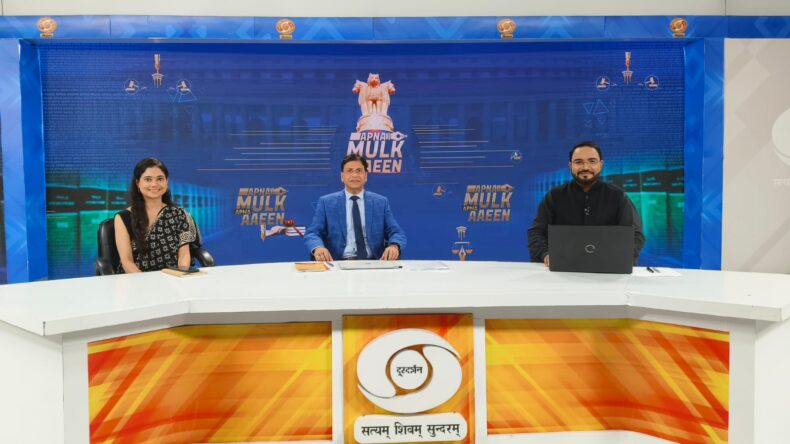New Delhi, September 16, 2025: A special interview telecast on Apna Mulk Aaeen (DD Urdu) featured Sh. Rajeev Bansal, Ld. Member Secretary, DSLSA, New Delhi, along with Advocate Mishika, who discussed the provisions of the Protection of Women from Domestic Violence Act, 2005 (DV Act) and the benefits of free legal aid services available through the Delhi State Legal Services Authority (DSLSA).
During the discussion, Sh. Rajeev Bansal, Ld. Member Secretary, DSLSA explained that domestic violence is not limited to physical abuse but also includes emotional, economic, and sexual abuse. Unlike Section 498A IPC, where women depend on the police to register an FIR, under Section 12 of the DV Act women can directly approach the Magistrate’s Court for relief. Interim relief, maintenance, residence orders, and custody rights are all covered under the Act. The responsibility of providing financial support can fall on adult male relatives such as the husband, father-in-law, or even sons, while offenders under 18 may also face action. Importantly, the Act provides protection for elderly women facing harassment, including from daughters-in-law. Women who fear losing their homes are also safeguarded, as courts can allow them to remain in the shared household or direct the respondent to provide alternative accommodation or compensation.
The interview further highlighted that non-compliance with court orders under Section 31 of the Act invites strict penalties, including imprisonment up to one year and/or a fine of ₹20,000. The Act directs that cases should ideally be resolved within 60 days, though delays are possible. Women without basic means of survival can be granted interim relief. Proceedings begin before the Magistrate’s Court, with appeals lying before the High Court and finally the Supreme Court. Sh. Rajeev Bansal also explained the process of filing a case under Section 12: a woman may file her complaint in the court where she resides, where the respondent resides, or where the cause of action arises. He further emphasized that free legal aid services are available at all Delhi District Courts through DSLSA, ensuring that women have access to legal representation without cost.
The programme also underlined that custody of children is an important aspect of the DV Act. Courts decide custody either in favour of the mother or father, depending on the circumstances, and also fix visitation rights—such as weekly, monthly, or fortnightly meetings—between the child and the non-custodial parent.

